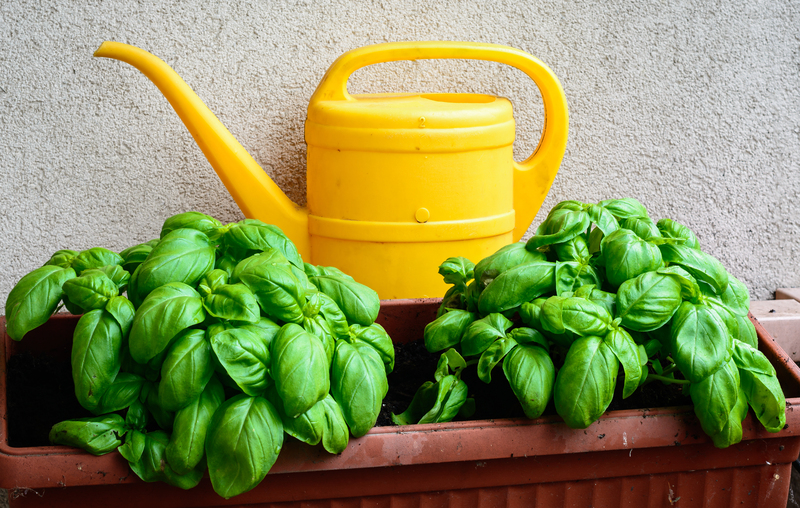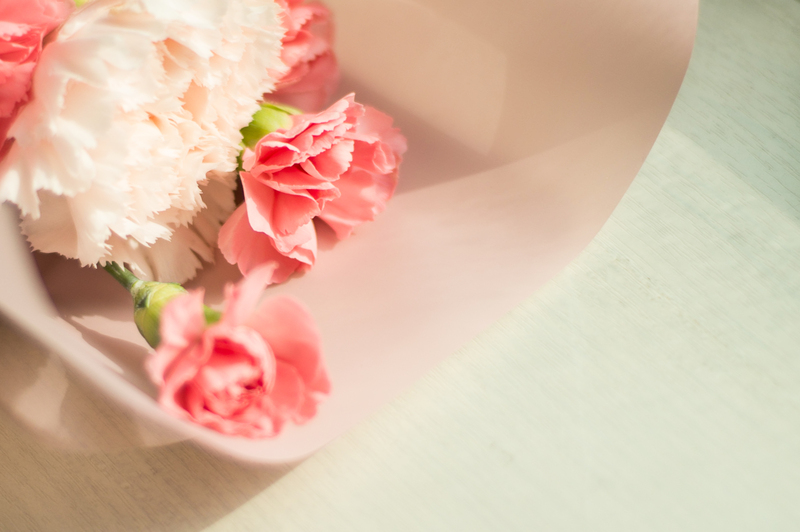Welcome to Gardening 101: 9 Essential Tips for Beginners
Posted on 23/08/2025
Welcome to Gardening 101: 9 Essential Tips for Beginners
Embarking on your gardening journey can be an exciting and rewarding experience. Whether you're aiming to grow vibrant flowers, delicious vegetables, or create a peaceful green retreat, knowing the fundamentals is crucial for success. In this comprehensive guide, we'll explore Gardening 101 and present 9 essential gardening tips for beginners that will help you establish and maintain a flourishing garden. Let's get our hands dirty and uncover the secrets to cultivating your own little slice of paradise!
1. Start Small and Simple
It's natural to feel eager and enthusiastic at the beginning of your gardening adventure. However, one of the most crucial gardening tips for beginners is to start with a manageable project. Choose a small garden bed, a few pots, or even a windowsill to practice your skills before expanding your gardening efforts.
- Begin with easy-to-grow plants like sunflowers, marigolds, basil, or lettuce.
- Opt for container gardening if you have limited space or want more control.
- Use this time to learn about soil, watering needs, and sunlight requirements.
Tip: Document your progress with a gardening journal to log what works and what doesn't.

2. Understand Your Soil
The foundation of every thriving garden lies underground -- in the soil. Understanding what type of soil you have and how to improve it is key to successful gardening for beginners. Soil provides vital nutrients, water, and support for plant growth.
How to Assess Your Garden Soil
- Pick up a handful and squeeze: does it clump (clay), fall apart (sandy), or feel somewhere in between (loamy)?
- Purchase a simple soil test kit to measure pH and nutrient levels.
- Add organic matter, such as compost or well-rotted manure, to enhance structure and fertility.
Remember: Most plants prefer slightly acidic to neutral soil (pH 6.0-7.0). Healthy soil means healthy plants!
3. Pick the Right Plants for Your Area
Proper plant selection is critical for a successful start. Not all plants thrive everywhere; climate, sunlight, and weather play significant roles in gardening success. Do a bit of research to determine which varieties are best suited for your region.
Factors to Consider When Choosing Plants
- Check your local USDA Plant Hardiness Zone or equivalent climate zone.
- Observe your space -- how many hours of sunlight does it get?
- Choose disease-resistant and drought-tolerant plants for lower maintenance.
- Visit local nurseries and ask for recommendations.
4. Master Proper Watering Techniques
Overwatering and underwatering are common mistakes made by new gardeners. Every plant has unique water needs, but there are a few general rules for watering gardens effectively.
- Water in the early morning to reduce evaporation and disease risk.
- Soak the soil thoroughly but let it dry slightly between waterings.
- Use mulch to conserve moisture and regulate soil temperature.
- Install drip irrigation or soaker hoses for efficiency in larger gardens.
Tip: Stick your finger into the soil -- if it's dry 2 inches down, it's time to water!
5. Learn About Sunlight Needs
Light is life for plants! Sunlight exposure varies depending on location and time of year. Most vegetables and flowers require full sun (at least 6 hours a day), while many leafy greens and herbs tolerate partial shade.
How to Position Your Garden
- Observe your yard for sunny and shady spots throughout the day.
- Group plants by their sunlight preference: full sun, partial sun, or shade.
- If space is limited, consider vertical gardening or movable containers.
6. Feed Your Plants
While good soil gives a head start, most gardens will benefit from additional nutrients during the growing season. Learn the basics about plant nutrition and how to fertilize effectively.
- Start with organic compost or slow-release fertilizers for gentle, steady feeding.
- Follow package instructions -- more is not always better.
- Watch for signs of deficiency: yellowing leaves, stunted growth, or poor flowering.
- Rotate crops and use cover crops to keep soil healthy year after year.
7. Understand Pest and Disease Management
Pests and diseases are part of every gardener's experience, but they don't have to ruin your hard work. Healthy plants are less susceptible, but being proactive is the key.
Simple Pest and Disease Prevention for Beginners
- Inspect plants regularly for holes, spots, or irregular growth.
- Encourage beneficial insects like ladybugs and bees.
- Practice companion planting to repel harmful pests, e.g., basil near tomatoes.
- Remove diseased leaves and dispose of them, rather than composting.
- If necessary, use organic solutions -- neem oil or insecticidal soap.
8. Keep Tools Clean and Organized
Every beginner gardener should assemble a basic toolkit and keep it in shape. Clean and organized tools make gardening more efficient and prevent the spread of plant diseases.
- Essential tools: trowel, pruners, hand fork, watering can, gloves, and a spade.
- Clean blades and handles after each use to prolong life and prevent contamination.
- Store tools in a dry spot to prevent rust.
- Sharpen blades seasonally for easy, clean cuts.
9. Be Patient and Enjoy the Process
Gardening is a rewarding hobby, but it also teaches patience and observation. Plants need time to grow, and every season offers new opportunities to learn.
- Take time to observe your garden daily -- growth changes can be fascinating!
- Celebrate small successes: a sprout, a bud, or a ripe fruit.
- Don't be discouraged by setbacks; even expert gardeners learn something new every year.
- Share your experiences with friends, family, or local gardening groups for extra inspiration.
The Benefits of Gardening for Beginners
Starting a garden delivers more than just beauty or fresh produce. Evidence suggests gardening improves mental well-being, reduces stress, encourages physical activity, and connects you with nature. For beginners, gardening tips and tricks learned along the way translate into lifelong skills and enjoyment.
Frequently Asked Questions: Gardening 101 for Beginners
- What's the best time of year to start a beginner's garden?
Spring is generally the ideal season, but this can vary depending on your climate and whether you're planting seeds indoors or outdoors.
- Do I need a large yard to be successful?
No! Container gardening, vertical gardening, and windowsill planters can all produce impressive results in limited space.
- How much time does gardening require each week?
Plan for 30 minutes to an hour a few times a week, but this will depend on your garden's size and plant type.
- What if I make mistakes?
Mistakes are part of learning. Every gardener has faced setbacks, but each error is a step towards gardening mastery.

Gardening 101: Your Takeaway
The world of beginner gardening is vast and full of possibilities. By starting simple, building good habits, and observing the natural world, you'll unlock a fulfilling and productive hobby. With these nine essential gardening tips, you're set for a successful start in your backyard, on your balcony, or even on a sunny windowsill.
Ready to get growing? Grab your gloves, gather your seeds, and let nature guide your progress. Remember, every lush garden begins with just one step (or one seed) -- and yours starts today!
Resources: Further Reading & Inspiration
- National Gardening Association: Learn to Garden
- Royal Horticultural Society: Beginner's Guide
- Penn State Extension: Gardening Basics
Wishing you fruitful beginnings and endless green discoveries on your gardening adventure!
Latest Posts
Breathe New Life into Your Garden: Take the First Steps
Hedge Trimming Techniques for Stunning Landscapes
Keep Your Garden Lush: Protect Plants from Winter Damage

